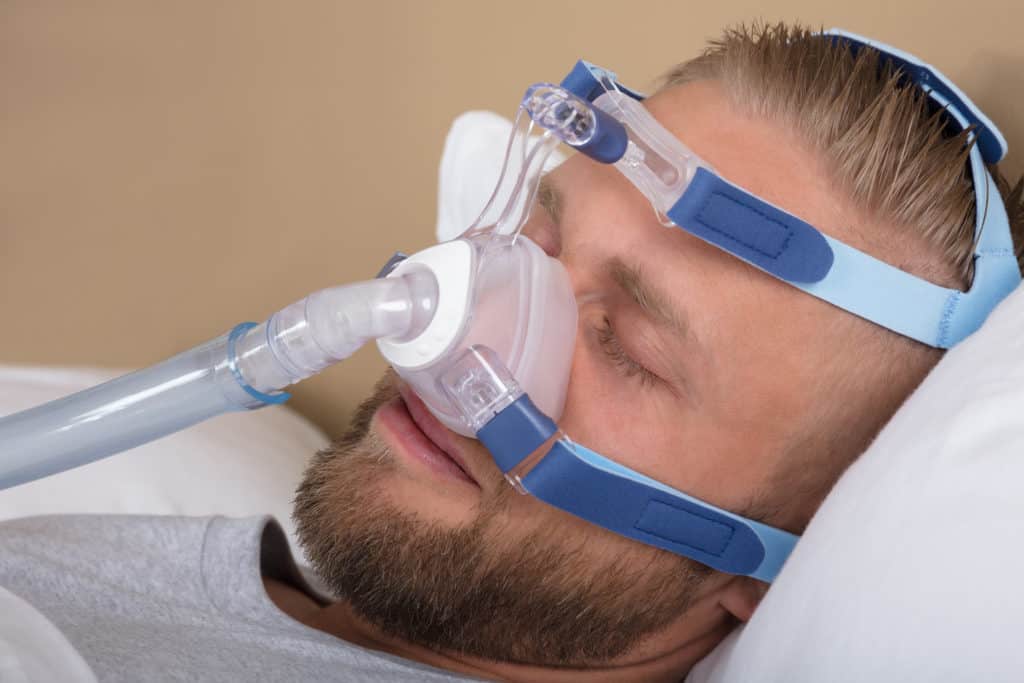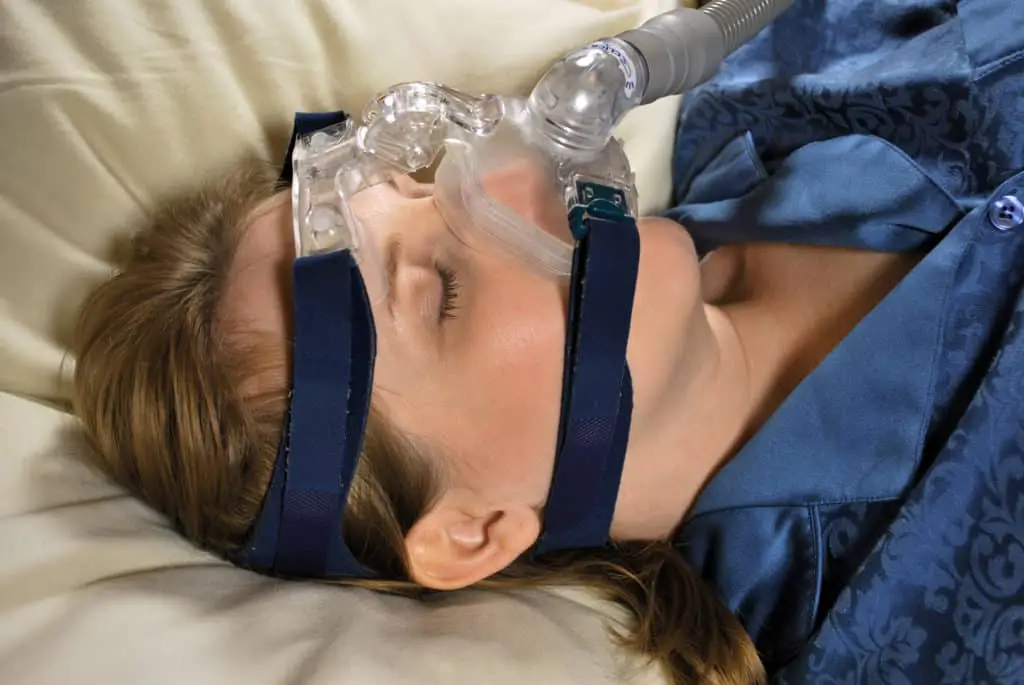This article is evidence-based, verified by Dr. Ahmed Zayed
A CPAP machine has many positive effects on one’s health in cases of sleep apnea and chronic obstructive pulmonary disease. Since its discovery, the CPAP machine has become a conventional treatment method for these health issues, making sure that there is a continuous airflow during the night.
But with so many features to consider, choosing the right CPAP mask for you might be overwhelming. Today, we will explore some things that you need to have in mind while selecting the right CPAP machine for you.
What is a CPAP machine used for?

CPAP stands for continuous positive airway pressure, which is a treatment method used for patients who are struggling with sleep apnea or chronic pulmonary obstructive disease (COPD). The CPAP machine uses mild air pressure to make sure that the airways are open, preventing them from collapsing, which is a common issue caused by either sleep apnea or COPD.
According to the Journal of Clinical Sleep Medicine, CPAP therapy can lower the risk of mortality among patients with sleep apnea and COPD.
CPAP therapy can lower the risk of mortality among patients with sleep apnea and COPD.
Sleep apnea is a common sleep disorder that affects approximately 3-7% of adult men, and approximately 2-5% of adult women . Due to sleep apnea, while sleeping, the patient’s breathing repeatedly stops and starts.
. Due to sleep apnea, while sleeping, the patient’s breathing repeatedly stops and starts.
The symptoms of sleep apnea include: daytime sleepiness, loud snoring, restless sleep, morning headaches, and even occasional waking up with a choking or gasping sensation. If it is left untreated, sleep apnea increases the risk of depression and heart disease, among many other health issues.
This is why using a proper CPAP machine is highly recommended as a part of effective sleep apnea treatment.
Chronic obstructive pulmonary disease (COPD) is used to describe lung conditions that include chronic bronchitis and emphysema. In 2016, approximately 8.9 million adult men were diagnosed with chronic bronchitis . Its symptoms are causing the breathing to become difficult, leading up to coughing and present chest discomfort.
. Its symptoms are causing the breathing to become difficult, leading up to coughing and present chest discomfort.
COPD is a progressive disease, which means that its symptoms get worse over time. Luckily, with proper treatment, the progress of the disease can be slowed down, reducing the severity of the symptoms at the same time.
The CPAP machine comprises of the following parts:
- A mask that can cover either both the nose and the mouth, cover only the nose, or consists of only prongs that fit into the nose;
- A tube that connects the mask and the CPAP machine’s motor;
- A motor that produces and blows the air into the tube and to the mask.
The different types of CPAP machine
There are three different types of CPAP machines, and before making a decision and rushing to the store, the patient is advised to consider each type and learn its best features.
In the following, we will shortly discuss the three types of CPAP machines and explain who should choose which type depending on its features.
The full face CPAP mask
Full face CPAP masks are recommended to those who tend to breathe through their mouth during sleep. In addition, anyone who is dealing with nasal complications such as deviated septum and chronic congestion is also recommended to use the full-face type.
If you are more likely to turn around during sleep repeatedly, this is probably the best option for you since the full-face mask comes with straps that will secure the mask’s position at all times.
The nasal CPAP mask
The nasal CPAP mask is the most popular choice among sleep apnea and COPD patients. The mask is lighter, although it still provides substantial coverage and can sustain higher pressure prescriptions.
The nasal pillow CPAP mask
One of the negative sides of the CPAP masks is that they often cause patients to feel claustrophobic during the night. Luckily, we have the nasal pillow mask that involves partially inserting small cushions into the nose and cover a very small portion of the face.
that involves partially inserting small cushions into the nose and cover a very small portion of the face.
This type of mask is ideal for patients who tend to sleep on their side, and for those who like to fall asleep in front of the TV since the mask assures unobstructed view.
Choosing the right CPAP machine for you

Choose a CPAP mask according to your needs
So far, we explained the three types of CPAP masks, and we can guess that you already have an idea of what mask is for you. Of course, this is a matter to be discussed with your doctor, but it sure helps to know what you want. Consider your diagnosis, your prescription, and your sleeping habits in the search for the best CPAP mask for you.
for you.
Choose the right size for you
You should look for a CPAP mask that fits good on your face. The mask should be large enough to allow proper air delivery, but not over-sized, which can cause the mask to shift and even cause air leakage during sleep. Do not feel ashamed to try as much as different-sized face masks before you find the one that works best for you.
Check the decibel levels of the machine
Although most CPAP machines are made to produce whisper sounds, no greater than 30 decibels, you might find out that some machines producer a louder sound than others. If you are a light sleeper, you should definitely check the decibel levels of the machine before you make the decision to buy it.
Choose a portable CPAP mask for traveling
If you are often traveling, we would recommend choosing a small, compact CPAP mask that is light wear and specifically designed for frequent traveling. It is a good tip to look for a machine that comes with a portable battery that you can easily charge and take it with you wherever you may go.
Look for a CPAP mask that comes with a humidifier
Using a CPAP mask without a humidifier can lead to dry, irritated airways, which is why it is always a good idea to look for one that comes with either a built-in or a separate humidifier. If you are frequently traveling, choosing a mask that comes with a separate humidifier is highly recommended.
Conclusion
Choosing the right CPAP mask takes time and patience. It is a process that involves a lot of thinking and requires you to consider different features and lifestyle choices. If you are traveling, perhaps a small, compact CPAP mask will fit you better. An added humidifier is a must, and if you are a light sleeper, then you should seek the quietest machine possible. Explore all the options and make the optimal choice to use the benefits that come with each CPAP mask.

Dr. Ahmed Zayed, MD holds a baccalaureate of Medicine and Surgery. An avid contributor to the Huffington Post and Chicago Tribune, Dr. Zayed believes in providing accurate and accessible information to general readers. With years of writing and editing content in the medical niche, Dr. Zayed likes to think of himself as a man with a mission, keeping the internet free of false medical information.
References
- https://www.healthline.com/health/nasal-cpap

- http://jcsm.aasm.org/viewabstract.aspx?pid=29071

- https://www.ncbi.nlm.nih.gov/pmc/articles/PMC2645248/

- https://www.webmd.com/sleep-disorders/sleep-apnea/symptoms-of-sleep-apnea

- https://www.healthline.com/health/copd/facts-statistics-infographic

